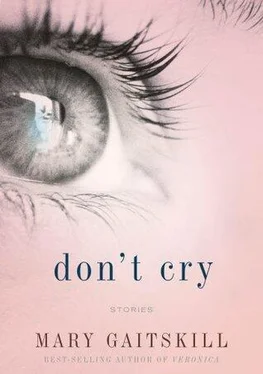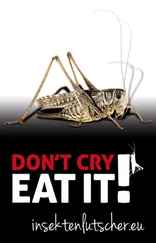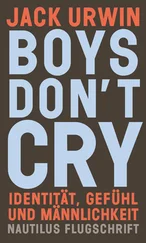You picture her at the start of her ordeal, parting a curtain to appear before the crowd, muscular, oiled, coifed, dressed in a lamé bathing suit with holes cut in the titties and crotch. She would turn and bend to show the suit had been cut there, too. She would “ring-walk” before the bed, not like a stripper, more like a pro wrestler, striking stylized sex poses, flexing the muscles of her belly and thighs, gesticulating with mock anger, making terrible penisbusting faces.
Might the killer enjoy this spectacle if he could watch it on TV? He may be a destroyer of women, but his victims were regular, human-style women: a concerned mother trying to connect with her daughter on a road trip in nature — the trip that delivered them into the hands of the killer. You picture the mother reading Reviving Ophelia the night before they left, frowning slightly as she thinks of the teenage boy years ago who fucked her mouth and then took her to dinner at Pizza Hut, thinks also of her daughter's coed sleepover last week. Getting out of bed to use the bathroom with only the hall light on, peeing in gentle darkness, remembering: Grown-up pee used to smell so bad to her, and now the smell is just another welcome personal issue of her hardworking body, tough and fleshy in middle age, safe under her old flowered gown. The daughter is awake, too, and reading Wuthering Heights. She is thirteen, and she is irritated that the author has such sympathy for Heathcliff who abuses his wife and child. What does it mean that he is capable of such passionate love? Is this realistic, or were people just dumber and more romantic back then? She doesn't think that the mean people she knows are the most passionate; they just want to laugh at everything. But then she remembers that she laughed when a boy in class played a joke on an ugly girl and made her cry. Sighing, she puts the book down and lies on her back, her arm thrown luxuriantly over her head. On the ceiling, there are the beautiful shadows of slim branches and leaves. She does not really want to take this trip with her mother. Her mother tries so hard to help her and to protect her, and she finds this embarrassing. It makes her want to protect her mother, and that feeling is uncomfortable, too. She rolls on her side and picks up the book again.
Thought and feeling, flesh and electricity, ordinary yet complex personalities, the like of which the killer had found impossible to maintain inside himself from the moment of his birth — and yet which he could erase with the strange, compulsive pleasure of an autistic child banging his head on the wall. You picture him as a little boy alone in an empty room, head subtly inclined, as if he is listening intently for a special sound. In the top drawer of his dresser, there are rows of embalmed mice stacked neatly atop one another. At age twelve, he has killed many animals besides mice, but he embalms only the mice because uniformity satisfies him. He likes embalming because it is clean, methodical, and permanent. He likes his mind to be uniform and inflexible as a grid. Below the grid is like the life of animals — sensate and unbearably deep.
There are people who believe that serial killers are a “fundamental force of nature,” a belief that would be very appealing to the killer. Yes, he would say to himself, that is me. I am fundamental! But the marathon woman on TV would be fundamental, too. She would not show her personality and even if she did, nobody would see it; they would be too distracted by the thought of a mechanical cunt, endlessly absorbing discharge. However, with her lamé bathing suit and her camp ring walk, appealing to everyone's sense of fun, she would be the fundamental female as comedy: The killer could sit comfortably in the audience and laugh, enjoying this appearance of his feminine colleague. Maybe he would feel such comfort that he would stand and come forward, unbuckling his pants with the flushed air of a modest person finally coming up to give testimony. Safe in her sweating, loose, and very wet embrace, surrounded by the dense energy of many men, his penis could tell her the secret story of murder right in front of everyone. Her worn vagina would hold the killer like it had held the husband and the lover and the sharpie and the father and the nitwit and every other man, his terrible story a tiny burning star in the rightful firmament of her female vastness.
Hell, yes, she would “show what women can do”!
In the context of this dreadful humanity you think, The poor turtles! They do not deserve to be on the same page with these people! You think of them making their stoic way across a pebbled beach, their craning necks wrinkled and diligent, their bodies a secret even they cannot lick or scratch. The murdered woman, in moments of great tenderness for her husband, would put her hands on his thighs and kiss him on his balls and say to him, “Secret Paul.” She didn't mean that his balls were a secret. She meant that she was kissing the part of him that no one knew except her, and that the vulnerability of his balls made her feel this part acutely That is the kind of secret the turtles are, even to themselves.
But now all natural secrets have been exposed, and it is likely the turtles have been sold to laboratory scientists who want to remove their shells so that they can wire electrodes to the turtles’ skin in order to monitor their increasing terror at the loss of their shells. You think, This idea is absurd and grotesque. It isn't even possible to remove a turtle's shell without killing it! Yet with science, anything is possible. With science, rats have been tortured by electroshock each time they press a lever to get a food pellet. Rabbits have been injected with cancerous cells and then divided into control groups, one of which was petted and the other not, in order to investigate the role of affection in healing. Scientists do these experiments because they want to help. They want to alleviate physical suffering; they want to eradicate depression. To achieve their goal, they will take everything apart and put it back together a different way They want heaven and they will go to hell to get there.
But still, there is grace. Before the mother met the murderer, her vagina had been gently parted and kissed many times. Her daughter had exposed her own vagina before her flowered cardboard mirror (bought at Target and pushpinned to the wall), regarding her organs with pleased wonder, thinking, This is what I have.
And maybe the turtles were not kidnapped, but rescued: There are actually preserves for turtles, special parks where people can take turtles they have found or grown tired of, or rescued from the polluted, fetid fish tanks of uncaring neighbors. Or maybe they were simply set free near the water, wading forward together as the zoo spokesman had hoped, eyes bright in scaly heads, each with the unerring sense of the other's heartbeat, a signal they never knew to question.
And maybe she didn't start the marathon in a gold lamé suit. Maybe she appeared in a simple white gown with a slip and a bra and stockings and beautiful panties that the first man (hand-selected for his sensitivity) had to help her take off to the sound of “The First Time Ever I Saw Your Face.” Maybe they even took time to make out, acknowledging romantic love and the ancient truth of marriage. It would be the stiff and brassy acknowledgment of showbiz, but deep in the brass case would be a sad and tender feeling — sad because they could stay only a moment in this adolescent sweetness, could not develop it into the full flower of adult intimacy and parenthood. But this flower comes in the form of a human; it must soon succumb to disease, atrophy, ruined skin, broken teeth, the unbearable frailty of mortality.
The marathon woman is not interested in mortality or human love. Right now, the marathon woman has infinity on her mind. Roberta Flack's crooning fades. The first man mournfully withdraws. Then: the majestic pounding of kettle drums and brisk, surging brass! It's 2001: A Space Odyssey! The lights go up! The silhouettes of naked men are revealed on the screen behind her bed, above which spins a giant disco ball! Men step from behind the screen and array themselves about the bed, splendid in their nakedness, even the ugly ones, like gladiators poised to wade in! This one now, number two, is very short and muscular, covered with hair. His face is handsome; his body exudes physical swagger shadowed by physical grief. The woman cannot know that, at eighteen, he was a gunnery mate on a PT boat in Vietnam, or that Time once ran a photograph of him posed with his machine gun, the brim of his helmet low across his eyes, a cigarette sticking up at a jaunty angle from between his clenched, smiling lips. She can't know it, but she can feel it: the stunned cockiness of an ignorant boy cradling Death in one arm, cockiness now held fast in the deep heart of a middle-aged man. Just before he enters her, she pictures his heart bristling with tough little hairs. Then she feels his dick and forgets his heart. He pulls her on top of him and she feels another man ready to climb up her butt while number four bossily plants himself in her mouth, one hand holding his penis, the other on his fleshy hip. The referee, a balding fellow in a smart striped shirt, weaves deftly in and out of the melee, ensuring that real penetration is taking place each time. The music segues into hammering dance music, the kind favored by porn movies, only better. The music is like a mob breaking down a flimsy door and spilling endlessly over the threshold. It celebrates dissolution, but it has a rigid form and it hits the same button again and again. It makes you think of Haitian religious dances where the dancers empty their personalities to receive the raw flux of spirit — except this music does not allow for spirit. This is the music of personality and obsession, and it is like a high-speed purgatory where the body is disintegrated and reanimated over and over until the soul is a whipsawed blur. It is fun! People dance to this music every night in great glittering venues all over the world, and now the woman and the men fuck to it. They are really doing it and it is chaos! The referee furrows his brow as he darts about, occasionally giving the “Roll over” signal with his forearms, or a TKO hand sign barring a man who's trying to sneak in a second time.
Читать дальше












